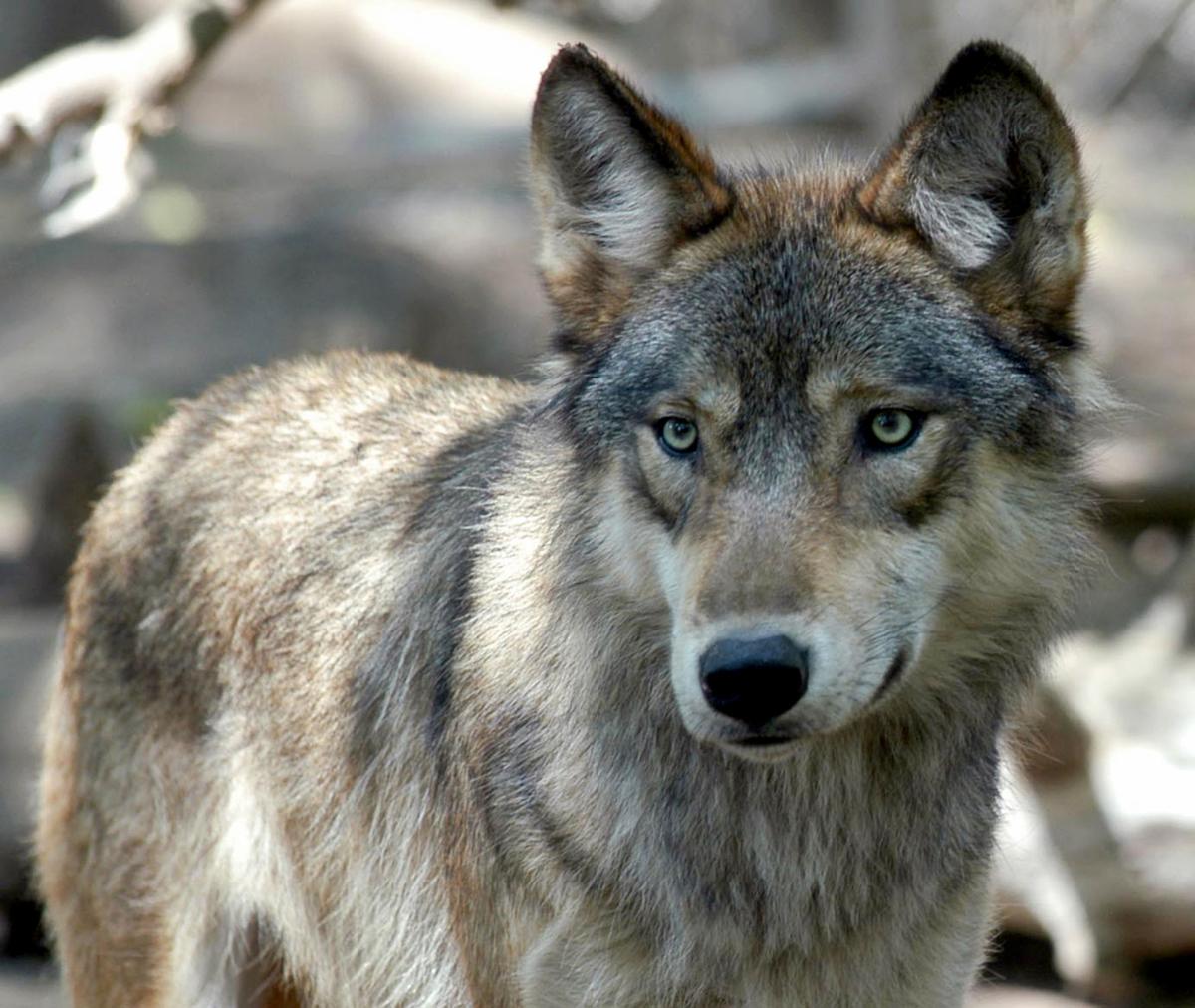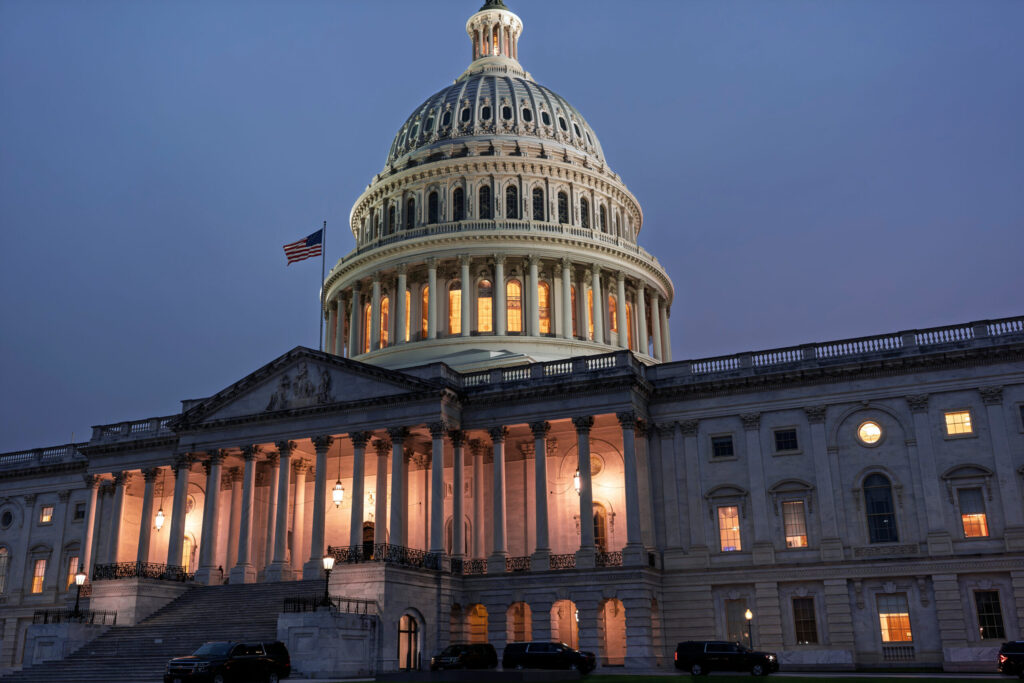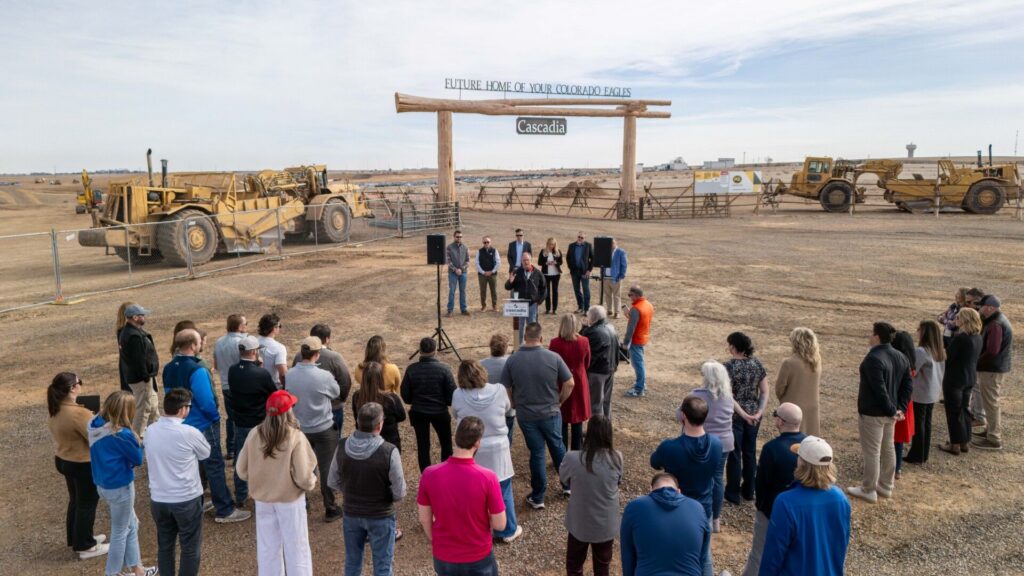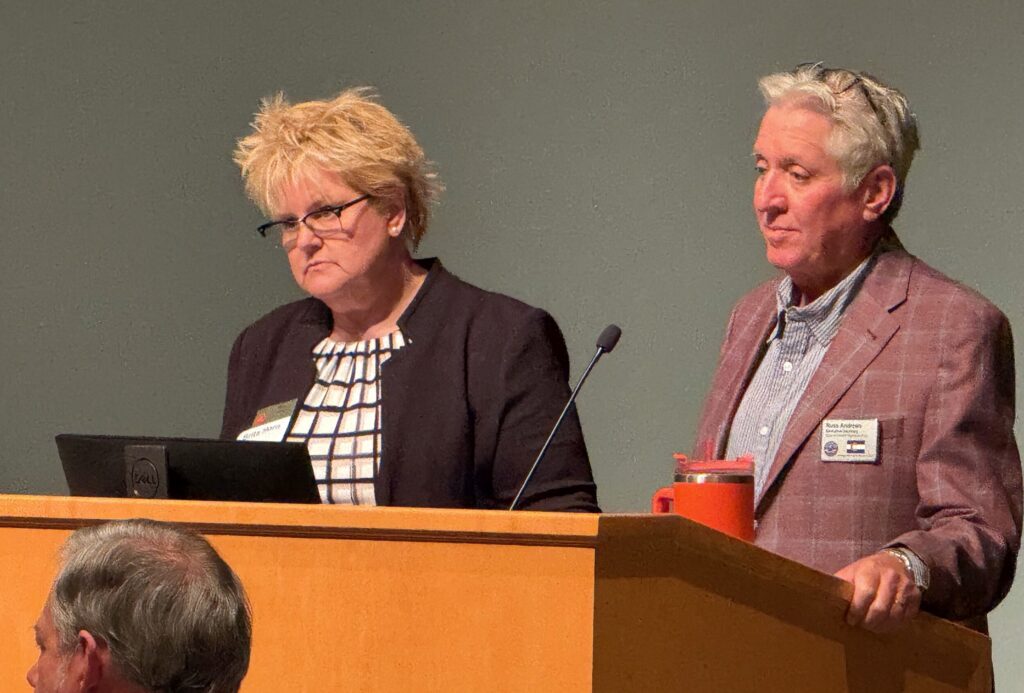Advocates for wolf ballot measure announce a ‘pause’ on petition gathering

File photo by Dawn Villella, Associated Press
While the deadline for petitions to show up at the Secretary of State’s office for ballot initiative #13, which could end the state’s program of introducing wolves in late 2026, came Wednesday, organizers announced they are putting a “pause” on the petition process.
That seems to be an indication they did not collect enough signatures to put the measure on the November 2026 general election ballot.
“The campaign exceeded its goal of collecting signatures from volunteers despite limited resources,” said Patrick Davis of Colorado Advocates for Smart Wolf Policy in a statement Wednesday. But he stopped short of saying just how many signatures were collected.
Petitions require 124,238 valid signatures, but the rule of thumb is to collect as much as twice that to allow for invalid signatures.
State law allows for six months between the date that the title and submission clause were fixed by the Title Board and when petitions are due to the Secretary of State.
Petition gathering is an expensive process. It’s not uncommon to spend a million dollars or more to get the signatures needed, even from grassroots organizations.
That’s been part of the problem for Advocates for Smart Wolf Policy. They managed only to raise $39,000 in the first six months of this year, and spent $30,000, mostly on consultants, including campaign organizer Davis, who was paid more than $10,000 in February and March.
The other problem was a lack of support from many in the ranching community. Some ranchers had taken the position that they would prefer to work with Colorado Parks and Wildlife on making the program work as intended by the state’s wolf management plan. County commissioners and other elected officials in the counties where wolves have been released also asked the ballot group to back off.
Advocates for Smart Wolf Policy submitted two ballot measures to end the state’s wolf program. The first was rejected by the title board for failing to meet the state’s single subject requirement. The second was approved
In the announcement, Davis said the pause would give the Colorado General Assembly and federal policymakers one last opportunity to permanently halt wolf reintroduction, require CPW to “responsibly manage the existing wolf population,” and “enact long-overdue federal delisting” and bans on international wolf importation.
If those actions don’t take place, the initiative will return stronger than ever, and Davis promised there would be an announcement in September.
Stan VanderWerf, a former El Paso County commissioner and one of the proponents for #13, thanked their 360 volunteer petitioners and thousands of volunteers who signed up with the campaign.
“Our ballot measure and your efforts gave the Smart Wolf Team a voice we used to meet with state and federal legislators and the Trump Administration,” he said in the statement.
The group emphasized that “this is merely a pause. The group intends to resume the ballot initiative if the state and federal governments fail to stop the scientific fraud of wolf trafficking.”
State laws and election regulations do not allow for a “pause” on gathering signatures for a ballot measure petition. Should the proponents decide to move forward, they would have to start from scratch with a new ballot measure submission to the Legislative Council, and repeating the entire process with the state’s title board to have the title and petitions approved.
Among its messaging, the campaign has pointed to the cost of introducing wolves, more than $8 million over the last five years. The estimate provided the General Assembly’s Blue Book said the program would cost $800,000 per year.
Higher-than-expected costs have also come from claims from ranchers who have lost livestock to wolves, including impact on market weights and reproduction. The legislature approved a wolf compensation fund at $350,000 per year, but claims just for 2024 with just 10 wolves in Colorado almost doubled that.
Ranchers are warning that with another 15 brought in from British Columbia and the birth of three more wolf packs this year, that claims could be even higher.
VanderWerf also said the group is “eager” to work the Colorado Cattlemen’s Association and the Colorado Wildlife Conservation Project.
“We all agree: CRS 105.8, the law mandating wolf reintroduction, must be amended; retain compensation but halt reintroduction.”
The Colorado Wildlife Conservation Project has been on record as opposing the ballot measure efforts, beginning with the ballot measure rejected by the title board. But they also noted that the timeline doesn’t work, as the state will likely achieve its desired reintroduction objectives before the November 2026 election.
Lawmakers at the state Capitol this week approved a special session bill to take $264,000 in general funds from the wolf reintroduction program in the 2025-26 budget and send it to the state’s Health Insurance Affordability Enterprise, to help subsidize health insurance premiums for individuals who buy that insurance through the state’s exchange.
The bill initially sought to prevent the use of any state money for the wolf program, but an amendment backed by the governor’s office will allow CPW to use other cash funds to acquire wolves.













